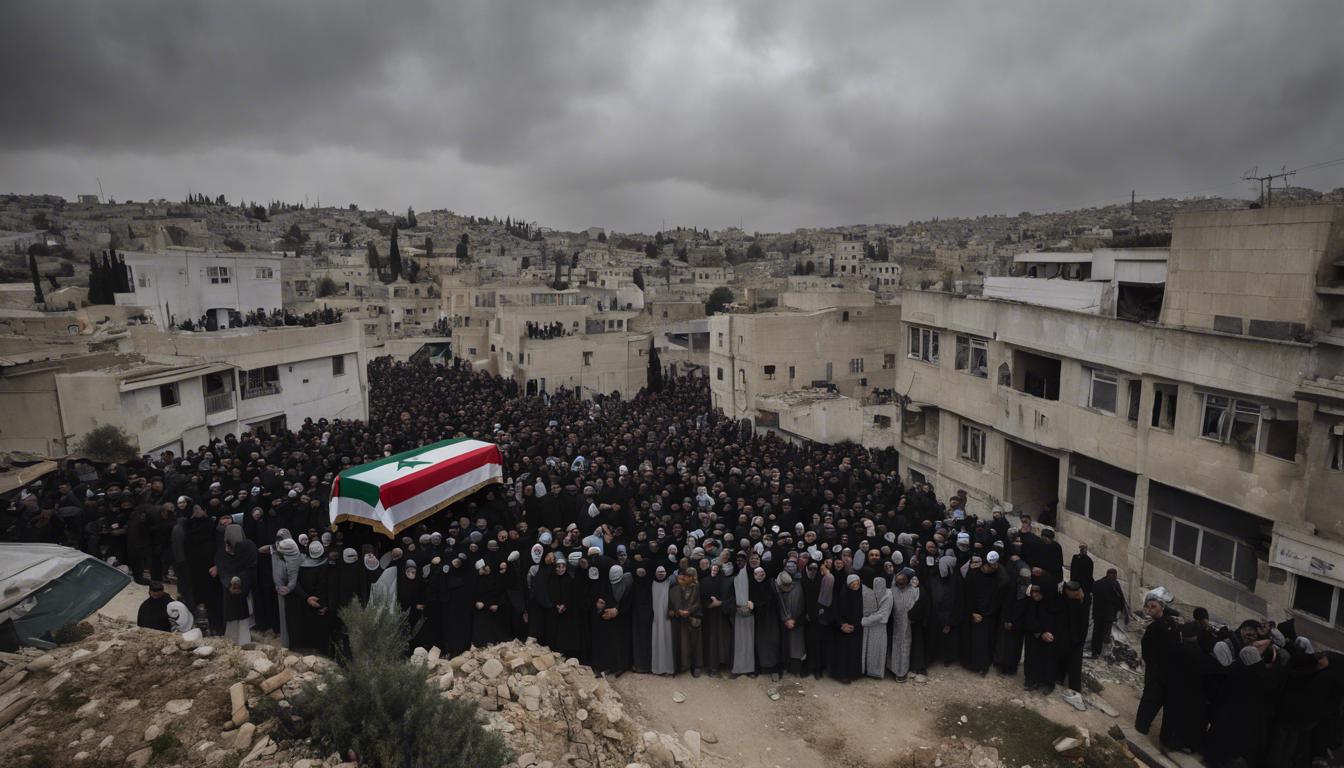The Palestinian Authority wounds mourners in Jenin, while Netanyahu pledges to continue offensive operations in Gaza amid a mounting humanitarian crisis and international diplomatic efforts to alleviate tensions.
On March 20, 2024, the Palestinian Authority was reported to have wounded 20 mourners in Jenin, West Bank, during a funeral procession for three Palestinians killed in an Israeli airstrike on the same day. The incident occurred amidst escalations following the Israeli airstrike near Jenin, which claimed the lives of three Palestinian militants.
In parallel developments, Israeli Prime Minister Benjamin Netanyahu affirmed his commitment to continue the ground offensive in Rafah, amid the ongoing conflict between Israel and Hamas, despite rising tensions with the United States. U.S. Secretary of State Antony Blinken was expected to visit Israel in light of these events. Since the beginning of the conflict, the Gaza health ministry has documented over 31,000 Palestinian casualties, many being women and children. Meanwhile, Hamas holds approximately 100 hostages, highlighting the protracted crisis in the region.
During this period of escalated conflict, Jews worldwide were preparing for Purim, a festive holiday commemorating the survival of Jews in Persia from a planned extermination. This year, the holiday was marked by caution in Israel, with the Education Ministry advising against potentially distressing costumes and traditional parades being canceled due to the war, signaling the overshadowing impact of the ongoing hostilities.
Elsewhere, a World Bank report highlighted a dire humanitarian crisis in the Gaza Strip, indicating that half of its population is facing famine, with over one million people at risk of acute malnutrition or death. The United Nations Secretary-General Antonio Guterres urgently called for Israel to allow unconditional aid access to Gaza to avert a catastrophe. The report underlined the urgent need for immediate action to prevent widespread starvation and potential deaths in the coming months.
On the international front, Israeli Prime Minister Benjamin Netanyahu engaged with Senate Republicans in Washington via video link, discussing the Gaza offensive and asserting Israel’s defense rights. The meeting underscored the partisan divide in the U.S. over support for Israel, with growing criticisms from Democrats regarding Netanyahu’s actions and policies, reflecting a shift in the traditionally bipartisan support for Israel.
These events collectively depict a complex tableau of regional conflict, international diplomacy, and humanitarian crises, underscoring the ongoing challenges in achieving peace and security in the Middle East.













